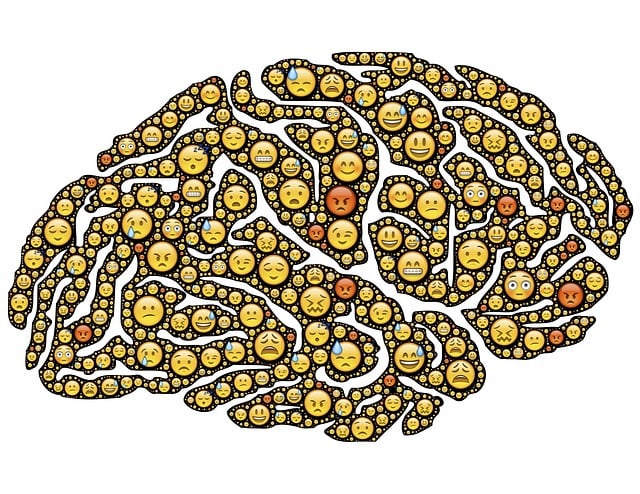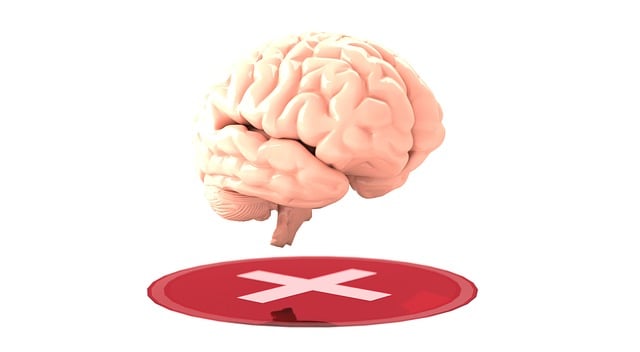Assessing mental health needs in Longmont Chronic Pain Therapy areas is crucial for developing tailored programs like self-awareness exercises and workshops. With high rates of depression and anxiety, these initiatives aim to integrate mental support into comprehensive care, reducing stigma and enhancing patient outcomes. Tailored resources, such as a Mental Wellness Podcast Series, empower patients to manage their mental health alongside physical challenges. Curriculum design involves selecting evidence-based techniques, ensuring inclusive practices, and reaching underserved populations through community outreach programs, promoting equitable access to mental health education in Longmont Chronic Pain Therapy.
In Longmont, chronic pain patients face unique mental health challenges. This article explores the design of a comprehensive education program aimed at empowering this community with evidence-based tools for managing stress and improving overall well-being. By analyzing the prevalence of mental health issues among chronic pain sufferers in Longmont’s therapy setting, we identify key areas for intervention. The proposed program curriculum integrates mindfulness, emotional coping mechanisms, and interactive exercises tailored to their needs, ensuring accessibility through partnerships with local healthcare providers and community centers. Through measurable evaluation, the program aims to enhance mental resilience and sustain positive outcomes within the Longmont chronic pain therapy context.
- Assessing the Need and Target Audience for Mental Health Education
- – Identifying the prevalence and impact of mental health issues in Longmont's chronic pain therapy community
- – Understanding the unique needs and barriers to accessing support among chronic pain sufferers
- Curriculum Design and Content Selection
Assessing the Need and Target Audience for Mental Health Education

Assessing the need for mental health education is a crucial step in designing an effective program. Understanding the specific challenges and gaps in knowledge within a community, such as Longmont Chronic Pain Therapy areas, is essential. This involves gathering data on local prevalence rates of mental health issues, especially chronic pain, and identifying at-risk populations. By evaluating existing resources and services, organizers can pinpoint unique needs and create targeted interventions. The target audience for such programs often includes students, working professionals, and community members seeking to enhance their mental well-being.
Tailoring education to diverse groups is key. For instance, a Community Outreach Program Implementation tailored for chronic pain patients might include self-awareness exercises focusing on managing symptoms and stress. In contrast, a workshop for mental health professionals could emphasize risk management planning, ensuring they have the tools to support clients effectively while maintaining their own well-being. Effective assessment ensures that educational efforts are relevant, accessible, and address the unique needs of the Longmont community.
– Identifying the prevalence and impact of mental health issues in Longmont's chronic pain therapy community

In Longmont’s chronic pain therapy community, mental health issues are prevalent and significantly impact patients’ overall well-being. Depression, anxiety, and other psychological challenges often accompany chronic pain conditions, exacerbating existing symptoms and hindering recovery. The interconnected nature of these issues underscores the need for comprehensive mental health education within this specific patient population.
Longmont Chronic Pain Therapy centers play a pivotal role in addressing these concerns. Through public awareness campaigns development and innovative educational programs, therapists can foster better understanding and reduce stigma associated with seeking mental health support. Additionally, integrating risk management planning for mental health professionals ensures that practitioners are equipped to handle the unique challenges presented by this community, ultimately enhancing patient outcomes and promoting effective Depression prevention strategies.
– Understanding the unique needs and barriers to accessing support among chronic pain sufferers

Chronic pain sufferers often face distinct challenges when it comes to seeking and maintaining mental health support. These individuals may experience a range of barriers that hinder their ability to access effective care. One significant factor is the stigma surrounding mental health issues, which can lead to feelings of shame or embarrassment, discouraging them from reaching out. Additionally, the physical toll of chronic pain can make it difficult to participate in traditional therapy sessions, as even basic activities may be draining. Many people in this situation prefer alternative approaches like Longmont Chronic Pain Therapy that cater to their unique needs.
Another aspect to consider is the impact of prolonged pain on mental wellness. Chronic pain can take a toll on one’s mood and self-esteem, leading to conditions such as depression or anxiety. Incorporating strategies for mood management and self-esteem improvement within a holistic program design becomes crucial. For instance, a Mental Wellness Podcast Series Production could offer valuable resources, providing guidance tailored to the challenges faced by chronic pain sufferers, ultimately empowering them to take control of their mental health journey.
Curriculum Design and Content Selection

Curriculum design for a mental health education program is a meticulous process that requires careful consideration of various factors. The goal is to create a comprehensive and engaging learning experience, especially when addressing complex topics like chronic pain management. In the context of Longmont Chronic Pain Therapy, the curriculum should be tailored to provide practical tools and knowledge that empower individuals to navigate their pain journeys effectively. This involves selecting evidence-based therapeutic techniques, such as Mindfulness Meditation, which has proven beneficial for pain reduction and overall well-being.
Content selection is a crucial step in program development. It entails choosing relevant topics that cater to the diverse needs of participants. Incorporating Healthcare Provider Cultural Competency Training ensures that educators can address the unique challenges faced by various communities, promoting inclusive practices. Additionally, designing modules on Community Outreach Program Implementation can equip mental health professionals with strategies to reach and support underserved populations, fostering a more equitable access to care.
In light of the above discussions, it’s evident that a comprehensive mental health education program tailored for the Longmont Chronic Pain Therapy community is both feasible and essential. By focusing on assessing specific needs within this population, such as addressing the unique barriers to accessing support, we can design a curriculum that resonates with chronic pain sufferers. Incorporating evidence-based strategies and leveraging accessible resources will enhance the program’s effectiveness, fostering better mental well-being among participants. This initiative holds promise in revolutionizing care for individuals navigating the challenges of chronic pain in Longmont.














